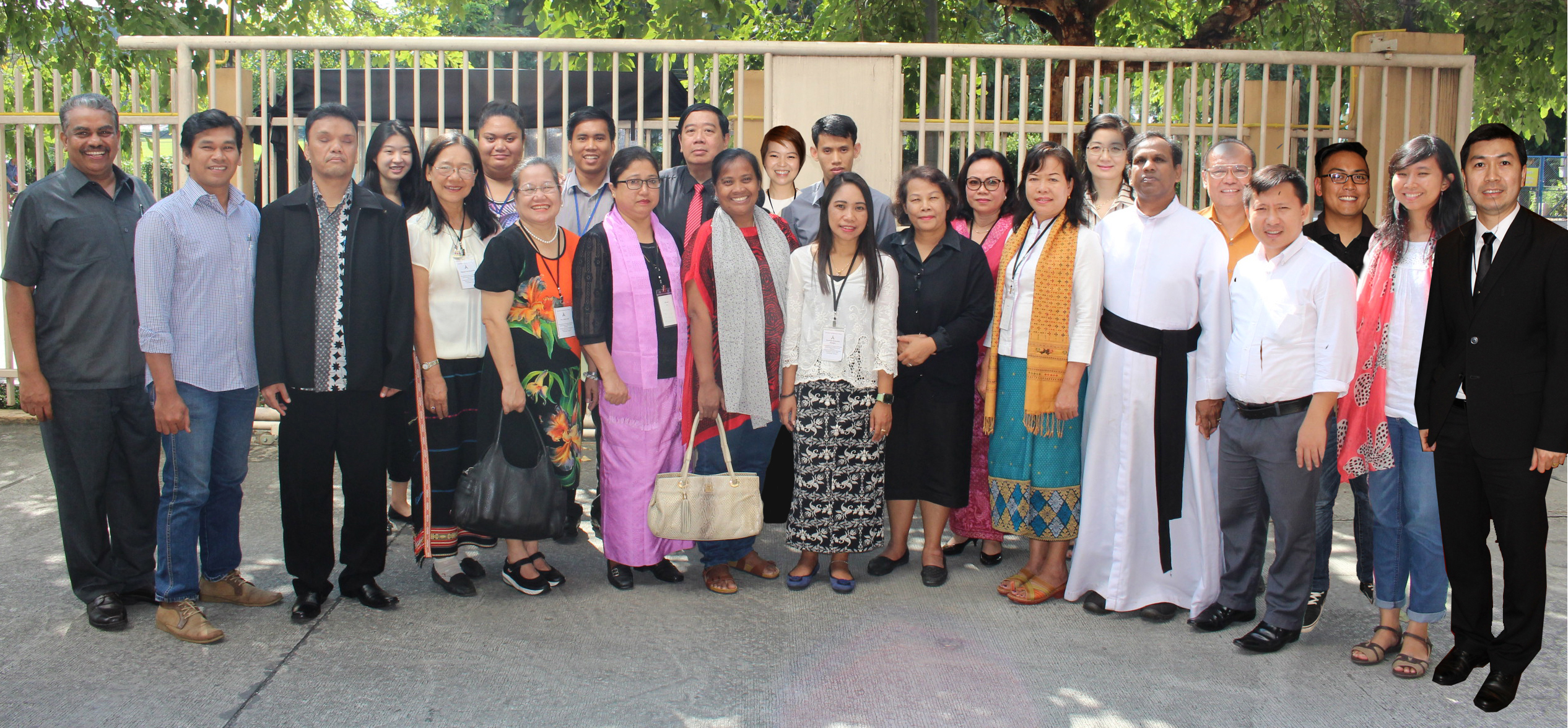CCA’s Asia Regional consultation on human trafficking emphasizes ecumenical engagement in anti-trafficking advocacy
 Participants of the Asia Regional consultation on human trafficking in Chiang Mai, Thailand.
Participants of the Asia Regional consultation on human trafficking in Chiang Mai, Thailand.
Human trafficking has been unfortunately thriving in many parts of the world. The magnitude of this heinous crime remains underestimated owing to its insidious and complex nature.
The most common form of human trafficking is sexual exploitation, with women making up the largest proportion of traffickers in Asia. The second most common form of human trafficking is forced labour, while almost 20 per cent of all trafficking victims are children.
The Asia Regional consultation by the Christian Conference of Asia (CCA), being held from 14 to 17 November 2016 in Chiang Mai, Thailand, emphasizes coordinated ecumenical advocacy to combat human trafficking.
“Today, when human trafficking poses an increasingly serious challenge to humanity, churches in many Asian countries do not provide the attention and resources needed to effectively address the plight of trafficked persons. The ecumenical movement, on the basis of Christian values, needs to demonstrate solidarity with vulnerable survivors by responding to our prophetic call, and being involved in issues of forced migration, statelessness, and human trafficking,” the General Secretary of the CCA, Dr. Mathews George Chunakara said in a thematic presentation during the opening session on ‘Human Trafficking, a Modern Slavery: Towards an Ecumenical Advocacy’.
CCA General Secretary outlined the link between human trafficking and the migration nexus, with a focus on the causes of the trafficking of women and children. He further elaborated on the international law on trafficking and its lack of effectiveness in practical application to combating human trafficking in many contexts in Asia.
“The impacts of human trafficking on human rights are multifaceted; today, it is everyone’s problem and requires a collective effort for abolition,” Dr, Mathews George Chunakara added.
Calling for a concerted action by the ecumenical family to combat this modern form of slavery, which is fast becoming one of the most profitable criminal activities worldwide, Dr. Mathews George Chunakara further said, “The situation of the trafficked people is replete with injustices. Our biblical and theological teachings mandate us to express solidarity with them and remind us that religion is pure and undefiled before God to be with them in their affliction.”
In a second thematic address delivered on the ‘Criminalization of Human Trafficking and its impact on Women and Children’, Alfie Gordo, Program Officer of the Global Alliance Against Traffic in Women (GAATW) said, “we need to be able to see how migration policies, work situations and gender norms are affecting trafficked people. The problem is deeply entrenched in our societies, so a part of the solution lies in identifying how we view women in daily life, and especially by avoiding the protectionism of women, or restricting women’s movement because some think that they are vulnerable.”
“We must embrace a human-rights based approach when advocating for the rights of trafficked persons, which includes avoiding the use of labels. Having a ‘victim’ label takes away trafficked persons’ agency,” she added.
Dr. Krisanaphong Poothakool, Associate Professor at the Royal Police Cadet Academy and Program Director at Rangsit University, in his presentation on ‘Human Trafficking and Forced Sex Workers’, provided the group with insight on the problems faced by trafficked persons owing to isolated workplaces, low wages and illegitimate documentation. He also outlined loopholes in governmental approaches taken to combat human trafficking.
“Some of the main challenges are victim identification procedures, proactive screening, insufficient interpretation services, and an uneven understanding of trafficking indicators,” Dr. Krisanaphong said.
He further added, “Key strategies for prevention of human trafficking at a local level would be to improve international collaboration, increase efforts to identify survivors, improve screening procedures and labour recruitment practices, and increase incentives for survivors to cooperate.”
In his session, ‘Human Trafficking and Forced Migration: Specific Situations in Asia’ Mr. Brahm Press, Director of the MAP Foundation, speaking on the discrimination of Burmese migrant workers in Thailand shared extensive research which focused on policies that keep migrants from fully integrating into society, which is their right.
“Migrants do dirty, difficult and dangerous jobs with no safety procedures in place and are already being paid less than what they should be; migrant women make even lesser than men. Additionally, migrants cannot form unions which results in an imbalance of power. Migrant workers also have no immediate access to health insurance and education rates among migrant children are extremely low,” Mr. Press said.
“While laws and policies are in place against the discrimination of migrants, administratively, these are not implemented,” he added.
About 40 participants, theologians, church workers, social activists, anti-trafficking advocates and representatives of ecumenical councils from different Asian countries are attending the consultation.










